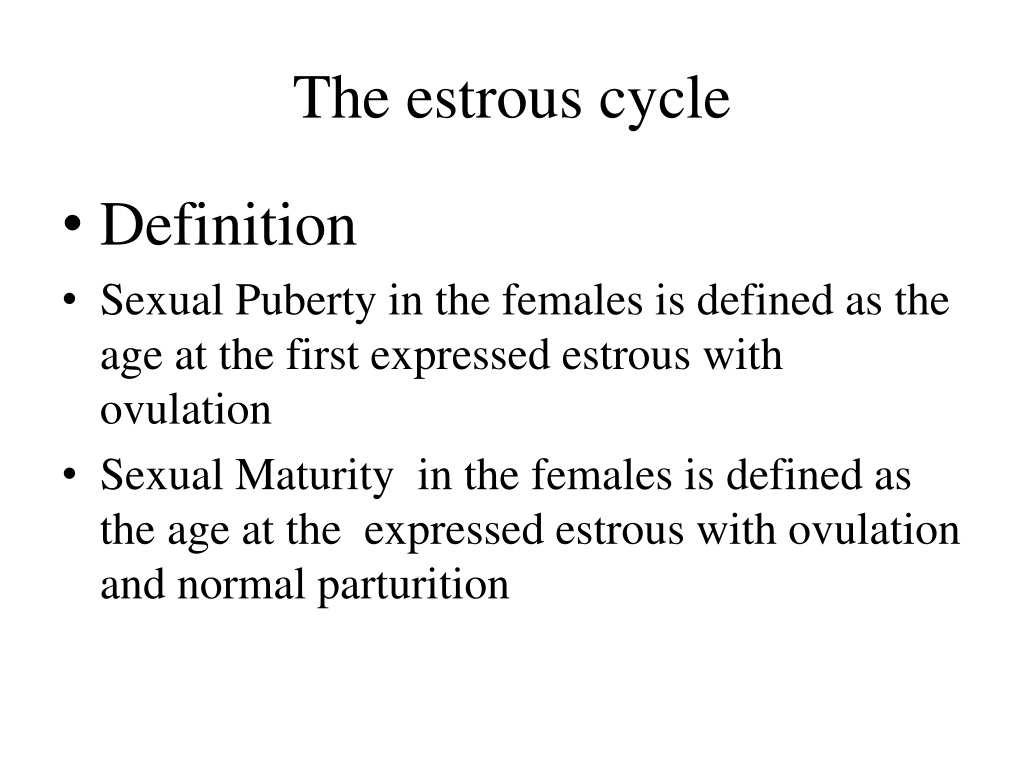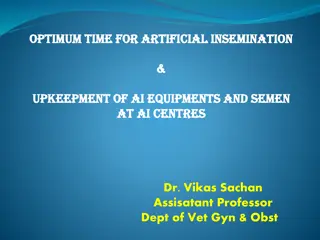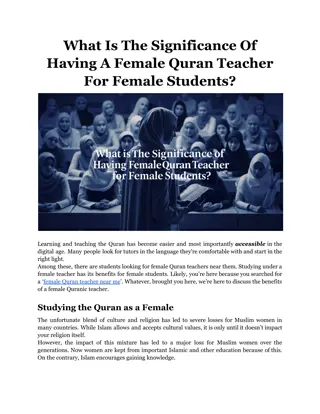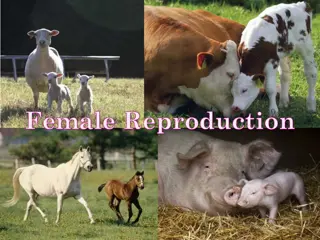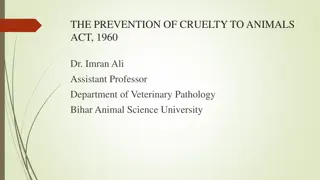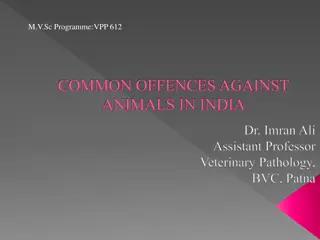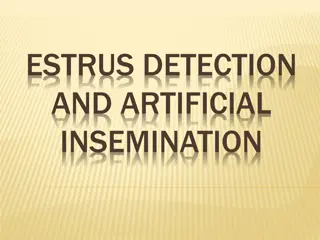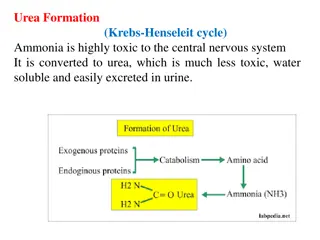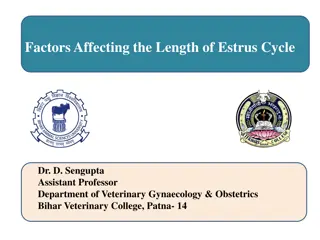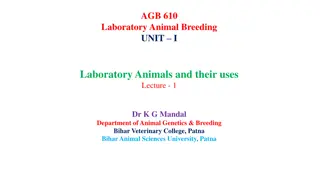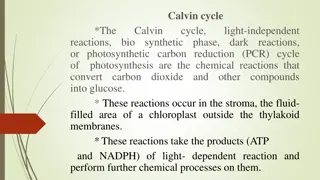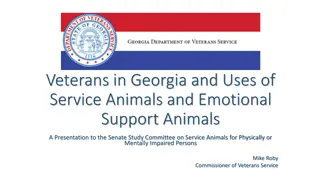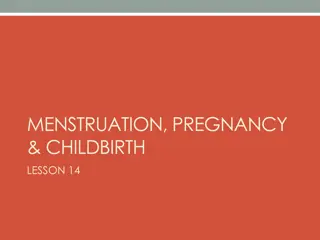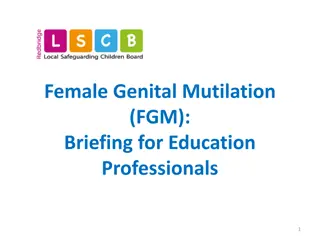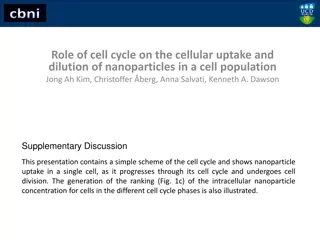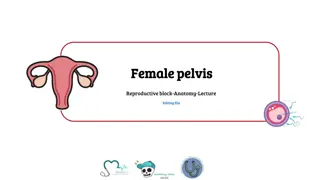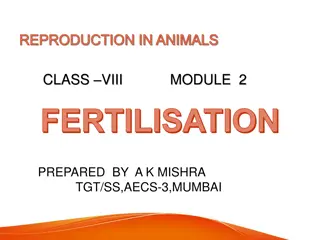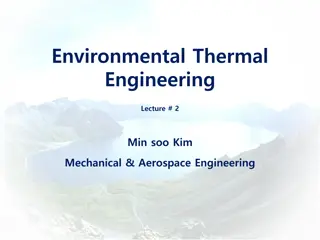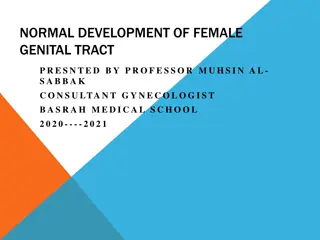Understanding the Estrous Cycle in Female Animals
The estrous cycle is a reproductive phenomenon in female animals, consisting of different phases like proestrus, estrus, metestrus, and diestrus. This cycle determines the periods of sexual receptivity and fertility in various species such as cows, ewes, sows, and mares. Factors like season, nutrition, stress, and pathology can influence anestrus, a phase when females do not exhibit estrous cycles. Understanding the characteristics and lengths of the estrous cycle in different species is essential for animal breeding and reproduction management.
Download Presentation

Please find below an Image/Link to download the presentation.
The content on the website is provided AS IS for your information and personal use only. It may not be sold, licensed, or shared on other websites without obtaining consent from the author. Download presentation by click this link. If you encounter any issues during the download, it is possible that the publisher has removed the file from their server.
E N D
Presentation Transcript
The estrous cycle Definition Sexual Puberty in the females is defined as the age at the first expressed estrous with ovulation Sexual Maturity in the females is defined as the age at the expressed estrous with ovulation and normal parturition
Definition Estrous cycle : reproductive cycle of female generally defined as period from one estrous to the next . It two phase 1- follicular phase(proestrus and estrus) 2- luteal phase (metestrus and diestrus) Estrous : period of sexual receptivity commonly referred to as heat Anestrous : period when female does not have cycles occurring during pregnancy , season , pathology .
Pregnancy Causes of Anestrus Season Pathology Nutrition Stress
Proestrus Estrus Stage of heat Metestrus Diestrus 4
Animalsclassified according to estrous cycle (TYPES OF ESTROUS CYCLE) 1 - Poly estrous; cow ,sow
B long day breeder; mare , queen 2 - Seasonal poly estrous A- short day breeder; ewe , doe
Hypothalamus Estradiol (+) Progesterone GnRH (-) Anterior Pituitary Inhibin (-) LH, FSH Estradiol LH, FSH LH CL Follicle Ovary
Average Reproductive Cycles Species Length of Estrous Cycle Length of Estrus Ovulation Length of Pregnancy cow 21 days polyestrus 18 hr 11 hr after end estrus 282 days ewe 17 days seasonal 29 hr near end estrus 148 days sow 21 days polyestrus 48-72 hr 35-45 hr after start estrus 115 days mare 21 days seasonal polyestrus 4-8 days 3-6 day of estrus (1-2 days before end of estrus) 335 days Doe 21 days 30-40 hrs few hrs after 149 days seasonal ovulation
Characteristics of Estrous Cycles Cow Ewe Sow Mare Estrous cycle (days) 21 17 21 21 Proestrus (days) 3-4 2-3 3-4 2-3 Estrus 12-18 hr 24-36 hr 48-72 hr 4-8 days Metestrus (days) 3-4 2-3 2-3 2-3 Diestrus (days) 10-14 10-12 11-13 10-12
Signs of Estrus Primary Sign of Estrus Stands immobile when mounted. Bellowing Red vulva Swollen vulva Clear mucus discharge from vulva 11
Secondary Signs of Estrus Behavioral Increased Activity Charging Licking Sniffing Chin-resting Mounting 12
Miscellaneous Signs of Estrus Depressed appetite Depressed milk production Frequent Urination 13
During rectal palpation Uterus is turgid Presence of GF
Ovary - CL and Follicle Corpus Luteum Graafian Follicle Tertiary Follicles
Spontaneous Ovulators Retain some neural control of ovulation heifers can alter the timing of the LH surge by clitoral stimulation
Induced Ovulators Nerve endings sensing copulation Sensory Neurons Penis Copulation
